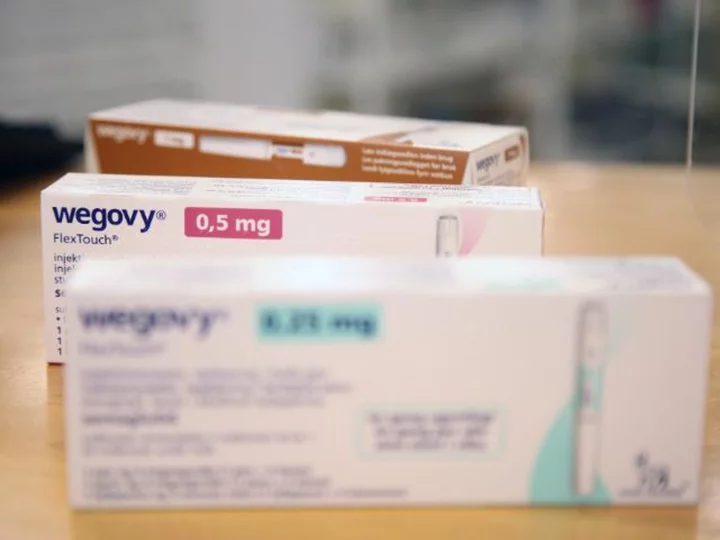The dazzling success of weight-loss drugs in the United States is leading to lower interest rates in Denmark, home of one of their biggest manufacturers, according to the Nordic country's biggest bank.
Sales of Wegovy — which, clinical trials have shown, can help people lose 15% of their body weight after less than 16 months — have skyrocketed in recent months. Its maker, Novo Nordisk, has raked in almost 49 billion Danish krone in profit ($7 billion) over the first six months of this year, up 32% from the same period in 2022.
Novo Nordisk also produces Ozempic, a drug developed to treat type 2 diabetes but which contains the same active ingredient as Wegovy. Some physicians have prescribed Ozempic to patients to help them lose weight.
Booming sales of both drugs have led to an influx of US dollars into Denmark's economy, which has pushed up the value of the Danish krone, Jens Naervig Pedersen, a director at Danske Bank, wrote in a note last week.
Denmark's central bank has responded by keeping interest rates below those set by the European Central Bank, Pedersen said. That has discouraged foreigners from buying more krone and reduced the currency's value, he told CNN. The Danish central bank has done so because it aims to keep the krone stable against the euro in order to achieve the same level of inflation as in the 20 countries that use the euro.
"It's extraordinary that one company is driving such a big part of growth and the trade surplus in Denmark," Pedersen told CNN. "We've had other big companies over the years but not one that's able to make such a big positive influence on the economy."
As a result, some homeowners in Denmark are paying lower rates on their mortgages than their peers elsewhere in Europe, he added.
Andrew Kenningham, chief Europe economist at Capital Economics, told CNN that Denmark had "done better than almost any other European economy" since the pandemic.
That is "very largely" down to the success of its pharmaceuticals industry, whose exports have roughly quadrupled since 2019, he said.
Surging demand
Shares in Novo Nordisk have soared 34% since the start of 2023 to give the company a market capitalization of 2.2 trillion Danish krone ($322 billion).
The stock shot up earlier this month after Novo Nordisk published the results of a five-year trial on the impact of Wegovy on cardiovascular disease. The drug was shown to reduce the risk of heart attack, stroke or heart-related death by 20%.
The drug maker is now the third-most valuable company in Europe, surpassing pharmaceutical juggernauts Roche and AstraZeneca.
The boom times are unlikely to end soon. Novo Nordisk now expects its profits to grow by up to 37% this year, much higher growth than the maximum 19% rise it forecast in February.
A surge in demand for its drugs that help people lose weight has led to a worldwide shortage, causing problems for patients with diabetes who rely on Ozempic to manage their condition.
According to a survey in July by the Kaiser Family Foundation, nearly half of US adults said they would be interested in taking a weight-loss drug they knew to be safe and effective.

